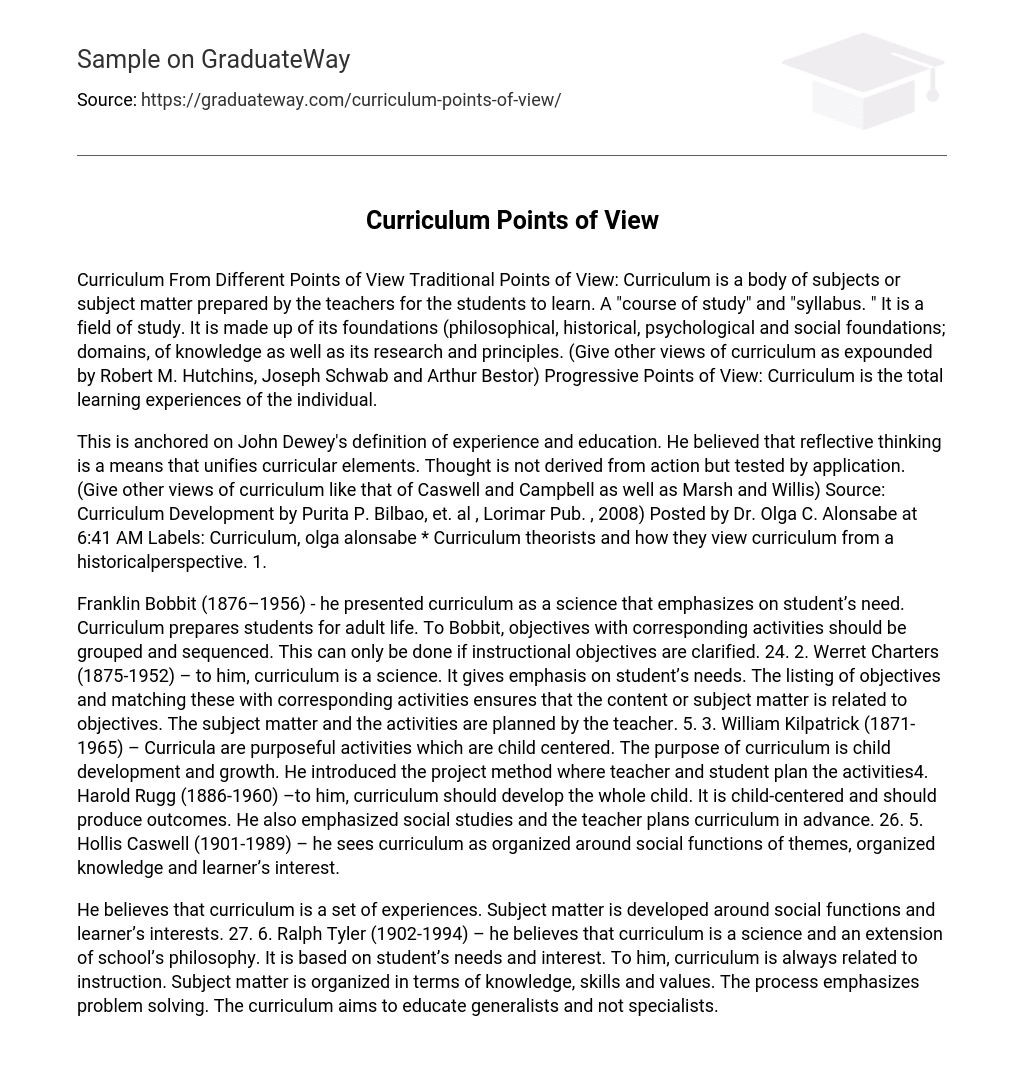Curriculum From Different Points of View Traditional Points of View: Curriculum is a body of subjects or subject matter prepared by the teachers for the students to learn. A “course of study” and “syllabus. ” It is a field of study. It is made up of its foundations (philosophical, historical, psychological and social foundations; domains, of knowledge as well as its research and principles. (Give other views of curriculum as expounded by Robert M. Hutchins, Joseph Schwab and Arthur Bestor) Progressive Points of View: Curriculum is the total learning experiences of the individual.
This is anchored on John Dewey’s definition of experience and education. He believed that reflective thinking is a means that unifies curricular elements. Thought is not derived from action but tested by application. (Give other views of curriculum like that of Caswell and Campbell as well as Marsh and Willis) Source: Curriculum Development by Purita P. Bilbao, et. al , Lorimar Pub. , 2008) Posted by Dr. Olga C. Alonsabe at 6:41 AM Labels: Curriculum, olga alonsabe * Curriculum theorists and how they view curriculum from a historicalperspective. 1.
Franklin Bobbit (1876–1956) – he presented curriculum as a science that emphasizes on student’s need. Curriculum prepares students for adult life. To Bobbit, objectives with corresponding activities should be grouped and sequenced. This can only be done if instructional objectives are clarified. 24. 2. Werret Charters (1875-1952) – to him, curriculum is a science. It gives emphasis on student’s needs. The listing of objectives and matching these with corresponding activities ensures that the content or subject matter is related to objectives. The subject matter and the activities are planned by the teacher. 5. 3. William Kilpatrick (1871-1965) – Curricula are purposeful activities which are child centered. The purpose of curriculum is child development and growth. He introduced the project method where teacher and student plan the activities4. Harold Rugg (1886-1960) –to him, curriculum should develop the whole child. It is child-centered and should produce outcomes. He also emphasized social studies and the teacher plans curriculum in advance. 26. 5. Hollis Caswell (1901-1989) – he sees curriculum as organized around social functions of themes, organized knowledge and learner’s interest.
He believes that curriculum is a set of experiences. Subject matter is developed around social functions and learner’s interests. 27. 6. Ralph Tyler (1902-1994) – he believes that curriculum is a science and an extension of school’s philosophy. It is based on student’s needs and interest. To him, curriculum is always related to instruction. Subject matter is organized in terms of knowledge, skills and values. The process emphasizes problem solving. The curriculum aims to educate generalists and not specialists.





